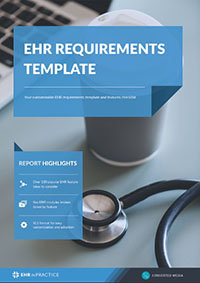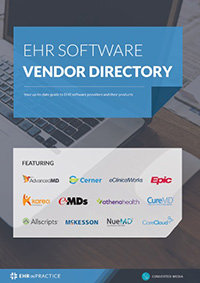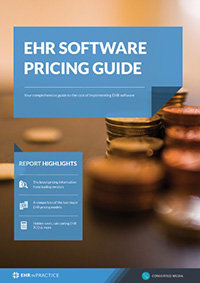Top requirements for medical billing
Of all the EHR features available on the market, EHR billing represents one of the many features that can offer significant gains in cutting waste and optimizing revenue flows. EHR billing features offer providers two significant benefits that can reduce operational costs and improve revenue flows. Firstly, EHR billing offers a way to reduce time and expenses related to billing. Secondly, it also gives providers a way to improve the accuracy of billing processes by reducing the risk for costly billing errors
Medical billing software can help reduce the risk of errors that may be more likely to occur with traditional billing staff. When inputting massive amounts of billing material, the comparable rate of errors between humans and billing software is substantial, as software can catch common coding mistakes that even the best trained medical biller will make.
According to the Healthcare Business Management Association, error reduction not only reduces audit risk, but it also captures potential lost revenue due to incorrect coding. The Healthcare Business Management Association notes that “proper coding and clinical documentation can make or break an otherwise well-run practice.” Medical billing software can provide a means to make billing more efficient by automating the billing process; it can also provide a safety net through which errors can be prevented or caught prior to claims submission.
Selection teams considering deploying medical billing software for the first time or for those looking to replace existing software should consider the following requirements when selecting an EHR product.
Integration with EHR
Medical billing software can be purchased as standalone software, or as an add on to an existing EHR or practice management product. Most frequently, it is also included with EHR or practice management software. Given the need for the seamless sharing of billing data across departments and the importance to incorporate clinical data into the billing and claims process an integrated or add-on system is the best way to accomplish this goal.
Compare EHRs based on their features, pricing, and more with our free EHR comparison tool
Reports and Analytics
Billing software should allow users to generate reports using data collected through billing software. Further, it should also give users the capabilities to analyze this data. When conducting operational reviews and planning it is important to examine billing data and analyze these data to make informed decisions.
Eligibility Verification
To ensure services will be reimbursed providers should have a system in place to verify eligibility for reimbursement for services. A medical billing system should offer the ability to check eligibility prior to services being rendered.
Custom Superbills
Medical billing software should be able to generate a superbill. A superbill is used as a primary source for generating claims for reimbursement. A superbill provides an itemized list of all services provided including CPT codes, ICD-10 codes, provider name(s), and referral information.
A medical billing solution offers practices the ability to eliminate costs related to outsourced billing, cut down on administrative resources needed to submit claims, and collect revenue while also ensuring accuracy.
Free white paper

EHR Requirements Template
Over 100 requirement and feature ideas to kickstart your EHR selection project

Featured white papers
-

EHR Requirements Template
Over 100 requirement and feature ideas to kickstart your EHR selection project
Download -

EHR Vendor Directory
Get the most up-to-date directory of EHR software vendors. Find the best software for your practice.
Download -

EHR Pricing Guide
Get your complete guide to EHR software pricing and project costs. Your headstart on EHR pricing research
Download
Related articles
-

EHR requirements and key features: your complete guide
Our extended guide to EHR requirements - everything you need to know and more on the subject
-

What successful EHR requirements gathering looks like
How to get the most out of your EHR requirements gathering process
-

The top four EHR requirements every practice should have

